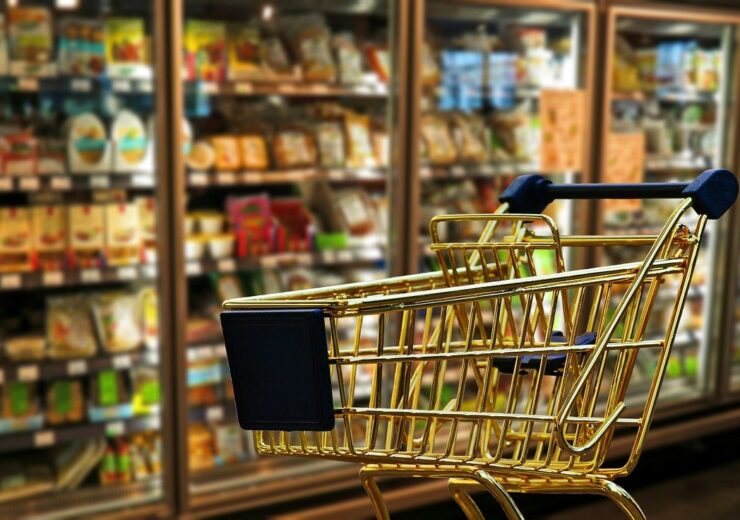This move, backed by WRAP, will support The UK Plastics Pact target to ramp up all plastics packaging recycling to 70% by 2025

OPRL adds crisp packets and metallised snack and chocolate wrappers to its in-store recycling labelling. (Credit: Alexas_Fotos from Pixabay)
OPRL is adding crisp packets and metallised snack and chocolate wrappers to its specialist in-store recycling labelling, building on earlier announcements to include polypropylene (PP) films from 1 January 2022. This move, backed by WRAP, will support The UK Plastics Pact target to ramp up all plastics packaging recycling to 70% by 2025 by simplifying messaging and broadening the range of plastic bags and wrappers consumers can recycle at front of store.
Following extensive research into the ability of sorting and reprocessing infrastructure to sort and recycle these lightly metallised wrappers within PP film streams, OPRL has extended further the use of its films label to packaging appearing on shelf from 1 January 2022.
Several supermarkets already collect crisp packets and similar wrapping via front of store recycling points, with many others trialling this ahead of expected roll out. Some of these collections are supported by the Flexible Plastics Fund, as part of their commitments under The UK Plastics Pact. OPRL is confident collections will be
widely available across the UK (ie to more than 75% of the population) for lightly metallised and non-metallised mono-polymer polypropylene film by January 2022, and, following thorough investigation, that the material will successfully be sorted and go on for processing into new packaging and products.
The definition of qualifying metallised packaging, agreed between CEFLEX, WRAP and OPRL, is PP films where the metallisation layer is a maximum 0.1 micron applied by vacuum or vapour deposition to the inside of the pack, such as crisp packets. The labelling extension does not apply to packaging materials constructed of aluminium foil
laminates such as pet food pouches, which should continue to be labelled ‘Don’t Recycle’.
OPRL is the only evidence-based UK recycling labelling scheme, taking into account not only what is collected for recycling but also the availability of infrastructure to sort and reprocess packaging, and effective markets for the resulting recycled material. On-pack labelling is used by 9 out 10 of consumers for information on whether they can recycle items.
Karen Graley, Co-chair of OPRL’s Technical Advisory Committee, said “This move to extend further our Specialist in-store recycling labelling for PE and PP films to include metallised crisp packets and confectionary wraps is good news in simplifying messaging for consumers, allows us to capture more of this valuable material and drive higher recycling rates. It was crucial for us to establish the evidence base that the UK’s sorting and recycling infrastructure can cope with these lightly coated wrappers, and that they won’t contaminate recyclate streams or reduce quality, before making this move and we’re grateful for the information and assurances we’ve been given by key infrastructure stakeholders.”
Kevin Vyse, Co-chair of OPRL’s Technical Advisory Committee, added: “OPRL has been working with WRAP to support The UK Plastics Pact targets of 100% reusable, recyclable or compostable plastic packaging and 70% recycling rates of plastic packaging by 2025 right from the outset. The Flexible Packaging Fund has also supported this move and the extension of in-store collections by our retail members, together with the assurances that infrastructure providers have given over their ability to deal with the material collected, are major steps forward in helping meet these targets by engaging consumers much more actively in recycling PE and PP films now.”
Helen Bird, Strategic Technical Manager – Plastics at WRAP and member of OPRL’s Technical Advisory Committee, commented: “Ahead of plastic bags and wrappers being collected directly from people’s houses, supermarket collection points are a critical stepping-stone on this journey under The UK Plastics Pacts. In the last year the number
of people taking bags and wrappers to supermarkets has nearly doubled and we expect this to grow significantly. We’re a nation of crisp lovers and it’s great to see the on-pack label informing people that the packs can be recycled at supermarkets; importantly, they are not just collected, but go on to be recycled. And we continue to encourage the supermarkets to tell their customers what happens to the materials once they are dropped off.”
Margaret Bates, Executive Director of OPRL Ltd, went on to explain: “As the only evidence-based recycling label in the UK we safeguard our reputation by ensuring there’s a proper evidence base underpinning our labelling decisions. It’s clear that the sorting and reprocessing systems can cope with lightly metallised wrappings without negative effects, but contamination with heavier aluminium foil laminates would be a major problem. It’s therefore essential these continue to be marked as ‘Don’t Recycle’ so that consumers get the right message very clearly on all packs.”
The traceability and audit commitments under the Flexible Plastics Fund also give a full assurance, with 80% of the volumes collected to be processed here in the UK. So now we all need to get behind encouraging consumers to bring these lightweight packs back to store for recycling so we can lift plastics recycling from the current 46% to hit the 70% target for 2025.”
Source: Company Press Release
